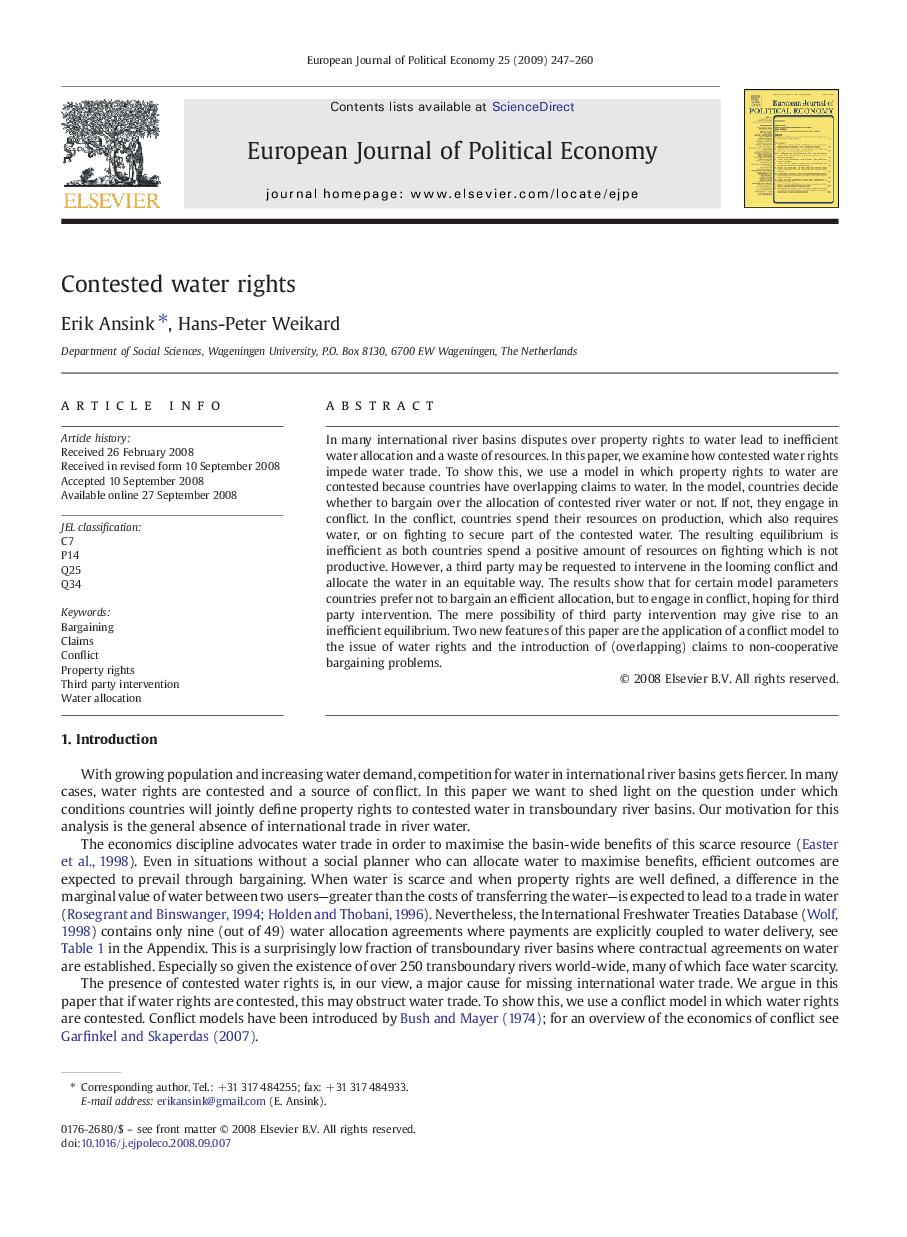| Article ID | Journal | Published Year | Pages | File Type |
|---|---|---|---|---|
| 5068581 | European Journal of Political Economy | 2009 | 14 Pages |
In many international river basins disputes over property rights to water lead to inefficient water allocation and a waste of resources. In this paper, we examine how contested water rights impede water trade. To show this, we use a model in which property rights to water are contested because countries have overlapping claims to water. In the model, countries decide whether to bargain over the allocation of contested river water or not. If not, they engage in conflict. In the conflict, countries spend their resources on production, which also requires water, or on fighting to secure part of the contested water. The resulting equilibrium is inefficient as both countries spend a positive amount of resources on fighting which is not productive. However, a third party may be requested to intervene in the looming conflict and allocate the water in an equitable way. The results show that for certain model parameters countries prefer not to bargain an efficient allocation, but to engage in conflict, hoping for third party intervention. The mere possibility of third party intervention may give rise to an inefficient equilibrium. Two new features of this paper are the application of a conflict model to the issue of water rights and the introduction of (overlapping) claims to non-cooperative bargaining problems.
